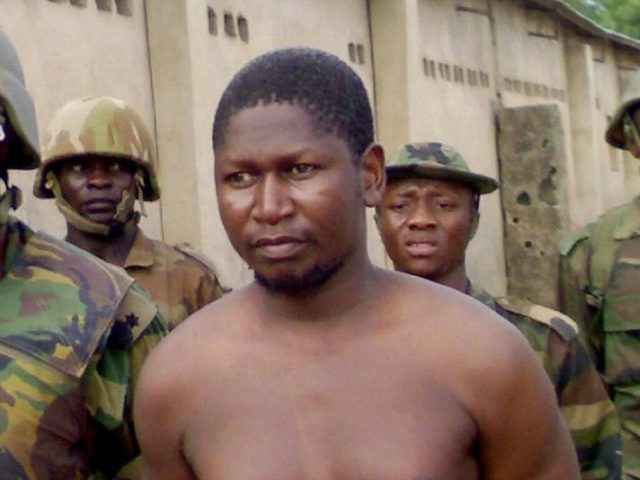The regional government of Nigeria’s Borno State announced last week that it intends to turn the former home of Mohammed Yusuf, founder of jihadist terrorist group Boko Haram, into a museum to attract tourist revenue.
Police captured and killed Yusuf in 2009 amid a jihadist raid of police stations in Maiduguri, Borno’s capital. He was succeeded by Abubakar Shekau, who later pledged his group to the Islamic State and turned it into a household name internationally through a campaign of mass abduction, rape, and murder of girls and women.
Nigerian President Muhammadu Buhari claimed that it had “won the war” against Boko Haram in December 2015, but there is no evidence the group has been defeated and members continue to use girls as suicide bombers for attacks in Borno regularly today.
Borno state Commissioner for Home Affairs, Information and Culture Muhammad Bulama announced the state’s plans to use Yusuf’s home as a museum on Wednesday.
“The Boko Haram insurgency is a turning point in the history of Borno state and the northeast. Our history cannot be written without reference to Boko Haram,” he told reporters. “We want to document it for posterity to have a clear and correct picture of what happened.”
Given the gravity of the destruction that Boko Haram brought to the region, Bulama emphasized the need for “documenting, preserving and archiving our history” to prevent another jihadist group from effectively recruiting and recreating Boko Haram’s legacy.
Bulama announced the plan at a summit for government leaders titled “Tourism and Culture as Panacea for Nigeria’s Economic Recovery,” according to the national Premium Times newspaper.
To that newspaper, Bulama explained, “We are going to convert the house of the leader of the Boko Haram sect Mohammed Yusuf where the insurgency all started from, to a museum … we want to build a museum there where all the things that had happened relating to the insurgency will be archived.”
Bulama added that the government hoped to turn the Sambisa forest, a dense sprawling area that Boko Haram still calls home, into a tourist destination “by reviving the already existing games reserve in the forest.” This plan will have to wait, he noted, until “stability is fully achieved.”
Some have expressed concern that the home may become a tourist destination for sympathizers to Boko Haram, and may elevate Yusuf’s status in the minds of jihadist sympathizers. Others note that building a museum in the memory of a jihadist insurgency that continues to claim lives in the region is premature.
“They should not be using the house of someone who killed people,” Nigerian human rights lawyer Anthony Agholahon told the BBC.
“By converting Mohammed’s home into a museum, the government runs the risk of immortalizing him,” writer Yomi Kazeem argues in Quartz Africa. “His preserved home could morph into a shrine of sorts for followers of the radical sect.”
The editors of Nigeria’s Vanguard published a piece on Monday arguing that the idea of constructing a museum to remember the devastation Boko Haram brought to Borno state is “laudable,” but impractical given that the war against the group has not ended.
“Such a phenomenon definitely deserves a museum where the stories, facts and artefacts will be preserved and displayed for tourism and historical purposes,” the editors write. “We, however, caution that the Boko Haram insurgency must be totally stamped out before such a project is initiated.”
The article also demands that such a museum have a memorial listing the names of soldiers and civilians who died fighting for Boko Haram, so as not to give the spotlight to the terrorist group over its victims.
The Nigerian government has repeatedly claimed it has defeated Boko Haram, only to have the group resurface and execute more massacres.
“I think, technically, we have won the war,” President Buhari told the BBC two years ago. “Boko Haram is an organized fighting force, I assure you, [but] we have dealt with them.”
Half a year later, after numerous Boko Haram attacks, military spokesman Col. Sani Usman told reporters, “We have come to the point that we can beat our chest and decisively say we have dealt with Boko Haram. The situation in the northeast has tremendously improved.”
Nigerian army chief Lt. Gen. Tukur Yusuf Buratai announced the defeat of Boko Haram once again that month, as well, during the same week that the group killed 19 people in a string of suicide bombings in Borno.
Nigeria’s Daiy Trust documented 1,101 deaths attributable to Boko Haram between Buhari’s announcement in December 2015 and December 3, 2017. Boko Haram also reportedly doubled its death count between 2016 and 2017. Daily Trust posits that the high death tolls are a product of Boko Haram terrorists turning to using child suicide bombers more often and abandoning attempts at police station raids and military attacks.

COMMENTS
Please let us know if you're having issues with commenting.